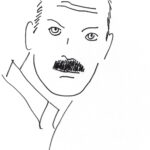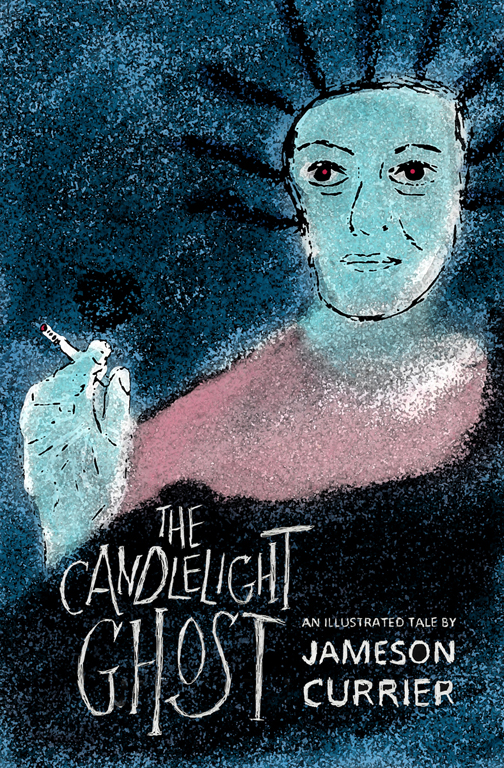sketch of Alan Hollinghurst
by Jameson Currier
ink on paper
20250107005

On Hollinghurst
Review by Jameson Currier
As in his extraordinary first novel, The Swimming Pool Library, British novelist Alan Hollinghurst again skillfully combines lush details, a reflective narration, and erotic depictions of gay life and relationships in his newest novel, The Folding Star. Edward Manners, a thirty-three year-old aspiring British writer, arrives in a Flemish town to be a private English tutor, only to find himself obsessively smitten with one of his pupils, Luc Altidore, a seventeen year-old boy expelled from school for some mysterious offense.
Possessed by a mounting but incommunicable longing for the boy, Manners becomes involved in affairs with two other men: a handsome trickster who runs a phone-sex service and a foreign, self-centered drifter who yearns only for Manners.
Through a second pupil, Marcel, an overweight, asthmatic boy, and his father, Paul Echevin, a local museum curator, Manners is also drawn into the world of Edgard Orst, a fictional painter who died during the Nazi occupation of Belgium and whose own career and paintings depict his infatuation with his brief lover, a red-haired actress who drowned off Ostend at the turn of the century. Echevin draws Manners into the artist’s world through trail of photographs and paintings, which also reveal Echevin’s boyhood relationship to the infirm and nearly blind elderly artist during World War II.
Like the first person narrator of The Swimming Pool Library, Manners may not be entirely admirable in his pursuits but he is nonetheless an earnest and compelling guide into the culture of a small Flemish town and its varied gay relationships. Secondary characters are memorably etched in The Folding Star and complimented through richly textured passages set in the dark European interiors of bars, restaurants, homes, and apartments.
Obsession, however, is the compelling force of this novel, and because Hollinghurst skillfully interweaves multiple stories driven by compulsion, the pacing never lags. At first, facts are presented as if clues; Manners, for instance, pursues his preoccupation with Luc as if unraveling a mystery. Triptych patterns abound throughout the novel, from the reassembling of three panels of an Orst painting, to trios of friends and lovers, to the structure of this complex, mature, and witty novel.
Divided into three sections, the central portion of this novel find Manners returning to England for the funeral of a former lover killed in a car crash. Lyrical and more retrospective than the opening and closing segments, Hollinghurst also uses the presence of AIDS to shadow in depth to the current state of Manners’ past relationships, using it to frame the narrator’s reaction to loss, guilt, and sudden disappearances, and resonate throughout the entire novel.
The title, inspired by Milton, refers to the “first sight of the evening star, suddenly bright, high in the west above the darkening outlines of the copses.” And as Hollinghurst threads together his plots and characters in the final pages of this novel with an astonishing dexterity and in unexpected results, like that unveiling moment at dusk, The Folding Star becomes an effervescent and magnificent achievement.
The Folding Star
by Alan Hollinghurst
(Pantheon, 1994)
________
This review was an unbylined review written in 1994 for Publisher’s Weekly.
On December 30, 2024, British author Alan Hollinghurst received a knighthood in the New Year’s Honors list for services to literature.








